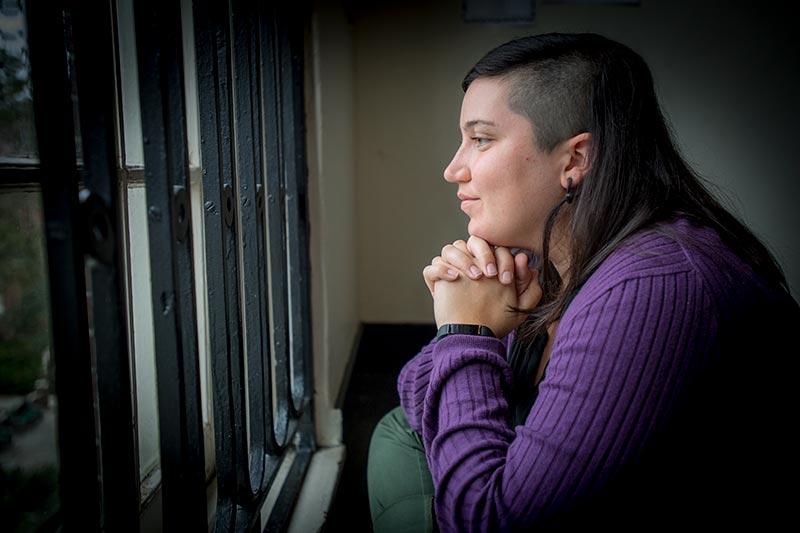Newcomb Prison Project leads charge to 'ban the box'
A combination of passion, tenacity and meticulous research helped a group of Tulane students contribute to meaningful policy change as Louisiana became the first U.S. state to prohibit public colleges from asking questions about criminal history (except sexual assault) in admission applications.
“About a million people are living with a criminal conviction in Louisiana, some went to prison, most did not, but all of them deserve access to education and the opportunity to live meaningful lives,” said Annie Freitas, program director of the Louisiana Prison Education Coalition. Freitas is a graduate student in the Tulane School of Liberal Arts and a research assistant for Newcomb College Institute.
Last year, Freitas, a student in the City, Culture, and Community doctoral program, led NCI’s Newcomb Prison Project, which connects project participants with incarcerated and formerly incarcerated people.
Tulane students Georgia Barlow and Olivia Butler worked with Freitas and Syrita Steib, executive director of Operation Restoration, a Tulane Center for Public Service partner organization, to research and revise the legislation. The group took part in strategy sessions and other meetings to ensure smooth passage of the bill.
After researching other states’ policies and logging a lot of time at the state capitol in Baton Rouge over almost three months, Freitas said, “We essentially rewrote the entire bill.” The group extensively lobbied and testified before Louisiana legislature house and senate committees. At the end of the legislative session this summer, Louisiana Gov. John Bel Edwards signed the bill.
Currently 40 percent of public colleges in Louisiana ask students about felony convictions on their admission applications. A recent study by College and Community Fellowships found that two out of three people who select “yes” to the criminal history question do not finish the college application. The new legislation is expected to encourage more people with convictions to finish the application process and access higher education opportunities. The group’s next goal is to get the state’s private colleges and universities to voluntarily comply with the new law.
The Newcomb Prison Project is supported by a generous gift from Hugo and Lanier Scott Isom (NC ’87).

